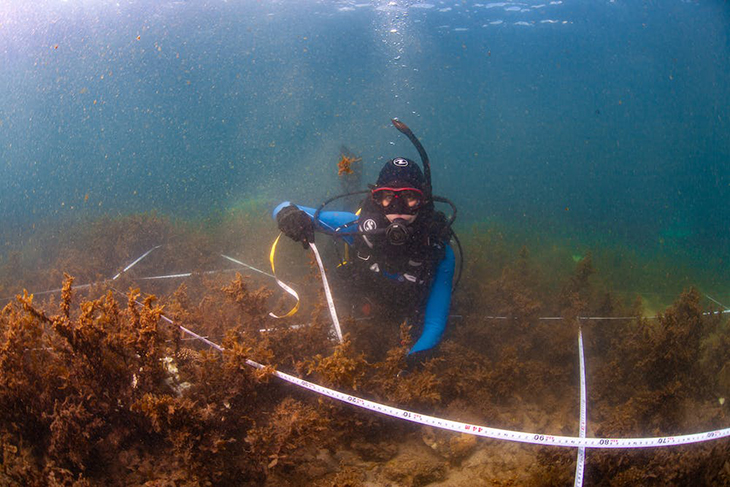
Gardeners are well aware of the transformative power of weeding in enhancing the growth of plants. Surprisingly, a similar principle applies to coral reefs. Scientists in Australia have initiated a unique “sea-weeding” program, where volunteers assist in removing excessive macroalgae from coral reefs. In a healthy ecosystem, corals naturally keep macroalgae growth in check. However, when coral sections die due to factors like extreme weather or bleaching, unchecked macroalgae can overwhelm the reef.
Over a span of three years, the Earthwatch Institute program, led by James Cook University Senior Research Officer Hillary Smith and Professor David Bourne from JCU and the Australian Institute of Marine Science, mobilized citizen scientists to clear macroalgae from two experimental reef sites. The results of this endeavor have been documented in the Journal of Applied Ecology and reveal a remarkable 600% increase in coral recovery rates.
This initiative underscores the vital role citizen participation can play in ecological conservation. By addressing the imbalance caused by coral loss, these volunteers have significantly contributed to restoring the health and diversity of the reef ecosystem. The success of this project highlights the potential for relatively simple, community-driven efforts to rejuvenate degraded natural habitats, offering hope for the future of coral reefs and marine biodiversity.
“It’s just like weeding your garden,” Smith explained. “Every time we return, the seaweed is growing back less and less, so this method could provide lasting benefit without requiring endless effort.”
The research sites were strategically situated within the central region of the Great Barrier Reef, specifically at an inshore location known as Yunbenun, which is colloquially referred to as Magnetic Island. This choice of location was deliberate, as it provided a unique opportunity to conduct a study with significant implications for coral reef conservation on a global scale.
Dr. Smith, the lead researcher, emphasized the profound importance of this study. She noted that many ongoing efforts to restore and protect coral reefs worldwide rely on costly, cutting-edge, and experimental technologies. These approaches, while effective, are often financially prohibitive for nations and organizations with limited resources. The primary aim of the study was to showcase that a more accessible and cost-effective solution, manual de-weeding, could be equally effective in rejuvenating coral ecosystems.
“We have yet to see a plateau in coral growth within these plots at Magnetic Island, which is characterized as one of the degraded reefs on the Great Barrier Reef,” Smith said. “We also found an increase in coral diversity, so this method is benefitting a wide range of different coral types.”
The results of the study hold promise for inspiring nations and conservation groups worldwide, particularly those lacking the financial means of a well-resourced country like Australia. By demonstrating the efficacy of manual de-weeding, the research team hopes to encourage the adoption of this approach as a viable method for safeguarding coral reefs.
Looking ahead, Dr. Smith and her team have ambitious plans. They are currently exploring additional locations where the sea-weeding technique could be applied to protect coral ecosystems. One such area of interest is the Whitsunday Islands, which are characterized by a distinct species of predominant seaweed. Adapting the de-weeding method to address the unique challenges posed by different seaweed species is a key aspect of their future research.
Furthermore, the team envisions extending their efforts beyond Australian waters. They are considering the application of manual de-weeding in regions like French Polynesia, Indonesia, and even Singapore. In Singapore, in particular, experts have identified a pressing issue of uncontrolled macroalgae growth threatening coral reefs. By expanding their work to these international locales, Dr. Smith’s team aims to contribute to the global conservation of coral reefs and to offer a scalable solution for protecting these vital marine ecosystems.
What are your thoughts? Please comment below and share this news!
True Activist / Report a typo


